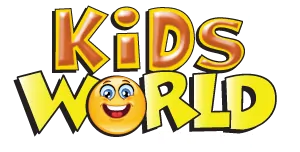Learn English » English Literature » Poem 'World I have not Made' by Elizabeth Jennings
World I have not Made
I have sometimes thought how it would have been
If I had had to create the whole thing myself-
My life certainly but also something else;
I mean a world which I could inhabit freely,
Ideas, objects, everything prepared;
Not ideas simply as Plato knew them,
Shadows of shadows, but more like furniture,
Something to move around and live in,
Something I had made.
But still there would be
All that I hadn’t made –animals, stars,
Tides tugging against me, moon uncaring,
And the trying to love with reciprocity.
All this is here still. It is hard, hard,
Even with free faith out looking boundaries,
To come to terms with obvious suffering.
I live in a world I have not created
Inward or outward.
There is a sweetness
In willing surrender: I trail my ideas
Behind great truths.
My ideas are like shadows
And sometimes I consider how it would have been
To create a credo, objects, ideas
And then to live with them.
I can understand
When tides most tug and the moon is remote
And the trapped wild beast is one with its shadow,
How even great faith leaves room for abysses
And the taut mind turns to its own requirings.
Analysis
World I have not made is a poem about the poet’s wish to take part in creation, with the hope that a better world, a more understandable world may be created.
Summary
In this poem, the poet wishes to create a world of her own wherein she can create her own life as well as other ideas and objects. But this world the poet wishes to create will not be constructed just by Platonic ideas, but by tangible objects such as “furniture” that one can “move around and live in”. Having said this, in the ensuing lines, the poet says that she would like to live in a world where some of the things would still be created already for her. These are the “animals, stars,/Tides tugging against me, moon uncaring,/And the trying to love with reciprocity.” In other words, the poet would like to have the universe (animals, stars, moon) and universal laws (reciprocal love) intact in her world, but would pitch in with her own creations.
However, the poet then muses on the difficulty with which once has to accept the suffering that is there in this world. This suffering cannot be understood even for someone “with free faith out looking boundaries”. However, the poet derives some comfort from the thought that there are “great truths” behind which her own ideas should “trail”. Her ideas deserve only to trail because they are amorphous, like “shadows”, without a form. Intuitively, she feels that she can understand the grand scheme of creation, where there are pulls of tides, the remote moon and the wild beast, but continues to say that even such “great faith leaves room for abysses” and “the taut mind turns to its own requirings”. In other words, faith is not enough to satisfy the mind, and it will always try to look for reasons and imagination, for a better world.
Language and imagery
The language of the poem “World I have not made” is conversational, and expresses an earnest wish as well as self-doubt. The theme of the poem, which is the poet’s wish for a better world by being part of creation, is aptly expressed in words that are at once simple, yet pithy. The poem reads like a philosophical argument. The major imagery employed in the poem is that of nature: animal, moon, and tides. These are used to talk about nature unchangeable. What the poet would like to change is more tangible, and would lead to less human suffering.
Was this article useful? What should we do to improve your experience? Share your valued feedback and suggestions!
Help us to serve you better. Donate Now!

